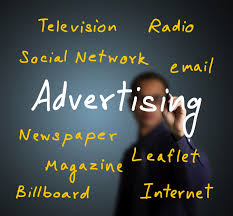Is Advertising Making Us Morally Bankrupt?
 Time was that envy was one of the Seven Deadly Sins in Christianity. “Count your blessings” and “the best things in life are free” once could be heard in the humble cottages of workers.
Time was that envy was one of the Seven Deadly Sins in Christianity. “Count your blessings” and “the best things in life are free” once could be heard in the humble cottages of workers.
That was before television broadcasting broke down the cottage walls and exposed the family to advertising galore. Children might have an innate (that is, God-given) instinct to make toys out of whatever’s at hand, but now they yammer for expensive bling.
Children don’t consider cost when the I want consumer reflex is triggered. Adults are the same. The poor can’t afford unnecessary extras, so isn’t it unhealthy to stimulate wayward appetites? The same for middle-class people whose incomes just barely meet outgoing expenses.
Educated folks with diplomas fall into this category. Only the business rich levitate above subsistence. Perhaps they’ve made a fortune selling hotdogs for $7 or more at sporting events. Maybe they’ve made a killing on quickly buying and selling some real estate. Doesn’t matter, because the poor and middle class are the targeted victims of ubiquitous advertising.
 Watch HGTV and popular shows like “House Hunters” to get the full display of those imaginatively living well beyond their means. “I like” and “I don’t like” are the phrases most often heard. Even the poorest of the poor are invited to change places with the affluent. Sure, the claim is made that appetite for material consumer stuff actually motivates some to do better. Perhaps, for a few. Most will spend family “milk money” to buy lottery tickets, while others will commit armed robbery to get a chance at the consumer-defined American Dream.
Watch HGTV and popular shows like “House Hunters” to get the full display of those imaginatively living well beyond their means. “I like” and “I don’t like” are the phrases most often heard. Even the poorest of the poor are invited to change places with the affluent. Sure, the claim is made that appetite for material consumer stuff actually motivates some to do better. Perhaps, for a few. Most will spend family “milk money” to buy lottery tickets, while others will commit armed robbery to get a chance at the consumer-defined American Dream.
Columnist Thomas Sowell in “Education and Moral Bankruptcy” argues that liberal do-gooders are creating the same unhealthy appetites in the educational world. Kids from poor neighborhoods are sent to luxurious private schools, hopefully to become envious of their betters–and revolutionary fodder for the left’s hoped-for class overthrow. For Sowell, “This is just one of many programs dreamed up by ‘educators’ who seem determined to do anything except educate. They see school children as guinea pigs for their pet notions.” Is it any wonder that classroom critiques by students fall into the like/don’t like assessment scheme?
What Sowell sees in US education has been adopted by the West, according to a British news source which equates Christmas spending with wider cultural problems: “Experts say youngsters who get everything they want in the festive season will become lazy and self-centred and push their families into debt.” Yes, “British parents were trapped in an unhealthy system of consumerism.” Contrasts are constructive: “While the happiness of children in Spain and Sweden relied on spending time with family and friends and having ‘plenty to do outdoors’, British children who were showered with material things were labelled the unhappiest in the industrialised world.”
In short, Americans who are bombarded by advertising and various do-gooder media-sponsored programs shouldn’t surrender independent judgments and automatically nod their heads in the affirmative.
 Time was that envy was one of the Seven Deadly Sins in Christianity. “Count your blessings” and “the best things in life are free” once could be heard in the humble cottages of workers.
Time was that envy was one of the Seven Deadly Sins in Christianity. “Count your blessings” and “the best things in life are free” once could be heard in the humble cottages of workers. Watch HGTV and popular shows like “House Hunters” to get the full display of those imaginatively living well beyond their means. “I like” and “I don’t like” are the phrases most often heard. Even the poorest of the poor are invited to change places with the affluent. Sure, the claim is made that appetite for material consumer stuff actually motivates some to do better. Perhaps, for a few. Most will spend family “milk money” to buy lottery tickets, while others will commit armed robbery to get a chance at the consumer-defined American Dream.
Watch HGTV and popular shows like “House Hunters” to get the full display of those imaginatively living well beyond their means. “I like” and “I don’t like” are the phrases most often heard. Even the poorest of the poor are invited to change places with the affluent. Sure, the claim is made that appetite for material consumer stuff actually motivates some to do better. Perhaps, for a few. Most will spend family “milk money” to buy lottery tickets, while others will commit armed robbery to get a chance at the consumer-defined American Dream.